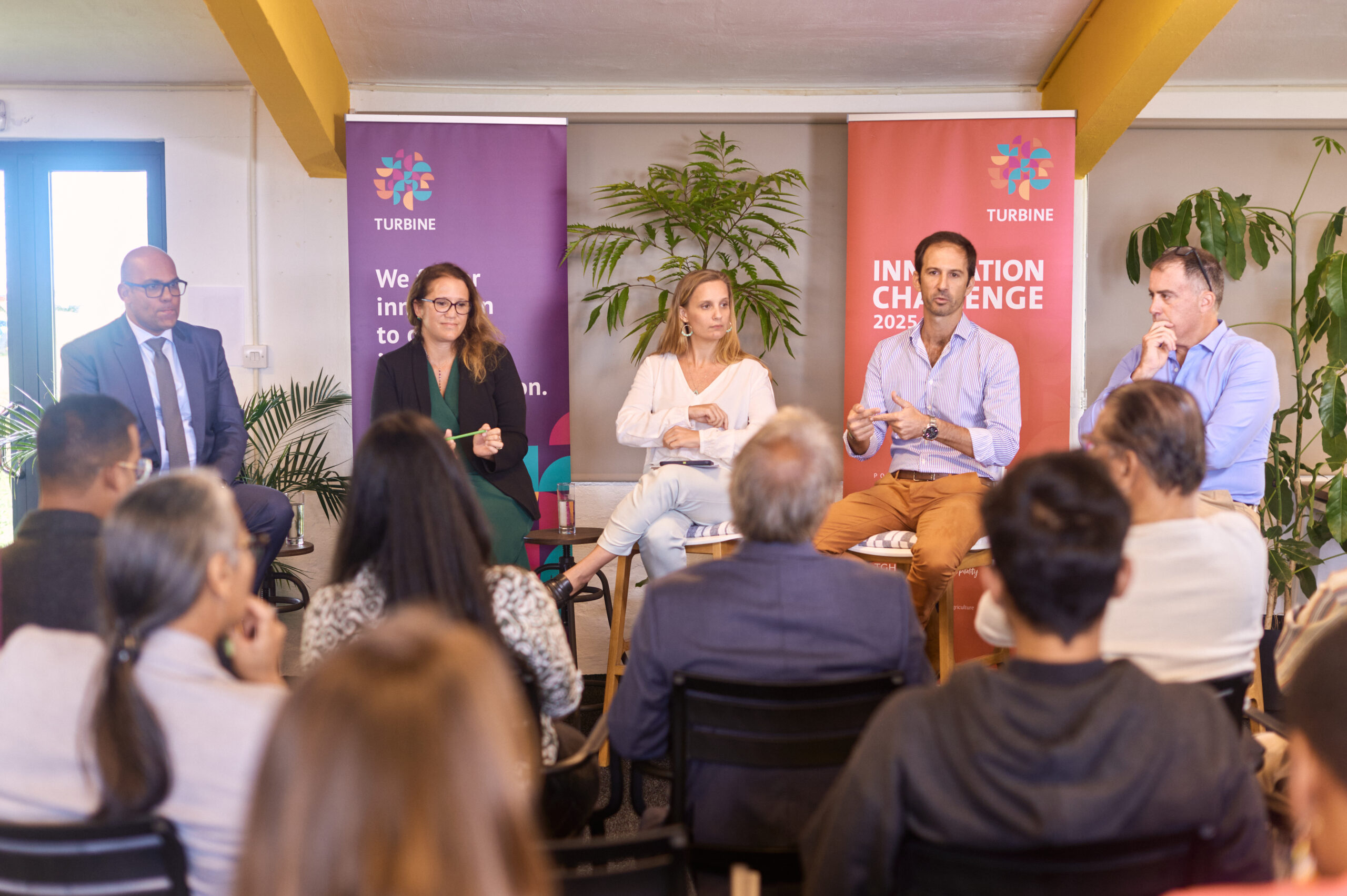The Latest
The Role of Startups and Corporates in Building a Sustainable Mauritius
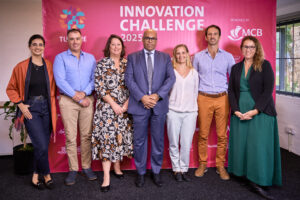
📅 Date: 24 July 2025
📍 Location: Turbine, Les Kocottes, Saint-Pierre
🎤 Moderator: Amandine Hardowar de Rosnay, Head of Sustainability and Inclusive Growth at Business Mauritius
Panelists:
- Harry Coolen, SME Banking Manager, MCB
-
Amaury M. d’Unienville, General Manager – Commercial and R&D, Saint-Gobain
-
Bruno Florens, Chief Sales and Marketing Officer, Inicia Ltée
-
Caroline Rault, Chief Sustainability Officer, Eclosia Angel Fund
Context
Held as part of the Innovation Challenge 2025, this roundtable gathered key ecosystem players to reflect on the role businesses and startups can play in Mauritius’s sustainable transformation. Discussions focused on the ability of startups to address environmental, social, and economic challenges, the dynamics of their integration with corporates, and the barriers to effective collaboration.
How can startups turn constraints into opportunities?
Amaury d’Unienville (Saint-Gobain) highlighted the crucial role of startups in challenging assumptions, offering concrete alternatives, and creating added value. He explained that innovation is about testing new approaches—essential for Mauritius’s sustainable shift.
Using the example of glass, he illustrated how a once overlooked material is now being recycled locally for construction, showcasing how circular economy models can thrive even in island contexts.
How can banks support innovation?
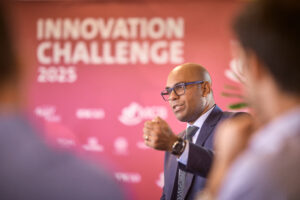
Harry Coolen (MCB) explained that traditional banks are limited in financing early-stage startups due to regulatory risk requirements.
Instead, MCB adopts a “beyond banking” approach, supporting the ecosystem through strategic partnerships (like with La Turbine), educational initiatives such as PUNCH by MCB, leasing solutions, and financial literacy efforts tailored to entrepreneurs’ real needs.
How do investors spot high-impact ventures?
Caroline Rault (Eclosia Angel Fund) outlined the fund’s criteria for supporting impactful ventures—particularly those aligned with national priorities like:
-
Circular economy
-
Food security
-
Ecological transition
-
Social inclusion
-
Cultural entrepreneurship
The fund’s support comes in various forms: equity (up to 30%), strategic mentoring, loans, and connection to public-private partners like the Economic Development Board or Business Mauritius.
Case Study: Inicia & WeCycle Partnership
Bruno Florens (Inicia) shared the success story of a partnership with WeCycle, a company producing recycled paper egg cartons locally.
Post-COVID, Inicia faced limitations in imported packaging, prompting collaboration with WeCycle. Despite higher initial costs, the project aligned with Inicia’s goals: waste reduction, local production, and sustainable alternatives.
By 2024, the initiative had become fully operational. Florens credits the partnership’s success to three factors: proper planning, flexibility, and long-term commitment to startup excellence.
How can startups be changemakers?
Amaury d’Unienville emphasized that Mauritius, a nation of industrialists, presents many untapped opportunities. Startups can deliver value-added solutions, challenge corporate habits, and lead the way in innovation—especially in construction, a sector currently open to using recycled materials.
He encouraged startups to seize this moment and proactively reach out to large corporations.
What do corporates expect from startups?
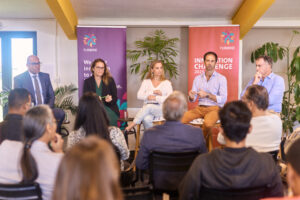
Amaury d’Unienville reminded that companies are built for profitability. Startups must bring clear value and solve real-world problems to build strong partnerships.
In construction, outdated practices persist: startups are key to introducing more sustainable, data-informed alternatives.
What innovation opportunities lie ahead for Mauritius?
Caroline Rault noted Mauritius’s environmental vulnerabilities (soil degradation, coastal erosion, water stress) and the potential to convert these into innovation drivers.
She identified key sectors with high innovation potential:
-
Regenerative agriculture
-
Reviving forgotten crops
-
Circular economy systems
-
Blue economy (Mauritius’s EEZ is 99.9% of its territory)
-
Cultural and creative industries
She also stressed the importance of integrating technology into all these areas to boost startup capabilities, and concluded with a call for strong collaboration across public, private, and civil sectors—as reflected in SDG 17.
Startups and businesses have a key role to play in shaping a more sustainable and resilient Mauritius. By working together across sectors, we can unlock innovative solutions to today’s most pressing challenges.
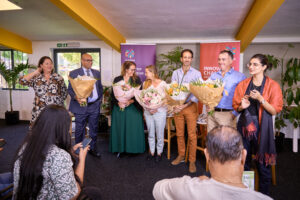
👉 Have an idea or business with impact? Apply to the Innovation Challenge 2025 before 14 August: turbine.mu/innovation-challenge
Let’s turn bold ideas into lasting change.
